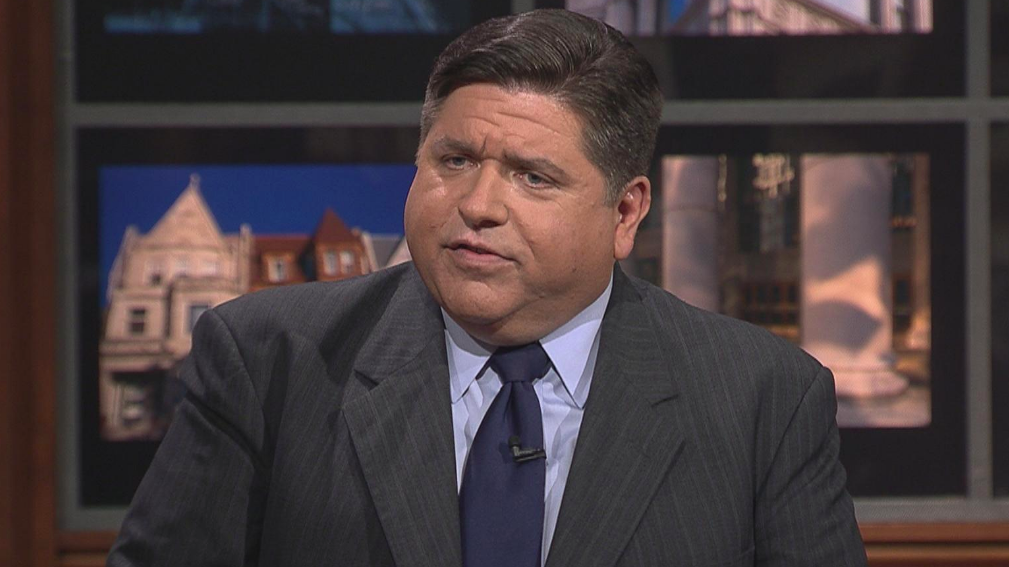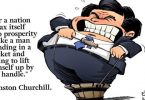
Photo by Crains Business
https://www.chicagobusiness.com/greg-hinz-politics/pritzkers-rx-illinois-ailing-economy
That’s the gist of the five-year economic development plan that Gov. J.B. Pritzker is releasing today.
“We need to grow jobs. We need to grow (salary) raises. The question is, how do we do that?” Pritzker said in an interview yesterday in his Thompson Center office. “This is a blueprint to set a foundation for growth.”
The most striking thing in the report is its call for emphasizing help for seven industry clusters: agriculture/agriculture tech, energy, information technology, life sciences/health care, manufacturing, transportation/logistics and small business.
Though some economists say trying to cherry-pick certain industries for help is a losing strategy compared to, say, across-the-board tax cuts, others counter that identifying and then nurturing and growing certain industry clusters has proved to pay big dividends. Pritzker clearly agrees with the latter sentiment, and pointed to New York, which a decade ago had little presence in the life sciences industry but has since targeted that field with major success.
“It’s not that we’re picking winners and losers,” said Erin Guthrie, who heads Pritzker’s Department of Commerce & Economic Opportunity and who sat in on the interview. “It’s that we’re picking six areas where we feel we should put in extra work because they’re fast-growing” and the state already has a significant presence in them.
In agriculture, which clearly already is a pillar of the state’s economy, the plan proposes to help better integrate tech solutions to problems including “eroded soils, more pests and pathogens, degraded quality of stored grain, and lower crop yields” from global warming. Pritzker wants to spend $420 million to expand broadband—mostly downstate—enlarge foreign trade zones to facilitate access by food processors and exporters, and increase joint-research efforts at academic and related facilities, such as the proposed Discovery Partners Institute in the South Loop here.
Another sector, information technology, is of particular importance to the Chicago area.
Pritzker cited research showing that, while Chicago still punches below its weight in attracting IT jobs, “we’re now on the map. We have all the makings.” To hit a higher gear, the state needs to make more capital available both for small startups and expansion-stage firms through efforts such as the just-implemented new tax incentive for data centers.
The Discovery Partners Institute in Chicago will need to raise $500 million in private capital before the state releases any of the $500 million in matching funds recently approved by the General Assembly—“I’m optimistic they’ll get there,” Pritzker said—but IT has lots of potential downstate, such as in redeveloping downtown areas favored by millennials, the plan says.
Pritzker’s tech plan would somewhat complement the P33 effort being led by his sister, former U.S. Commerce Secretary Penny Pritzker, and the Commercial Club.
One other area of particular note is life sciences/health care, a field in which Chicago long has sought to be a major player with both big research universities and big biotech firms based here but in which it has nonetheless lagged.
The report notes that R&D funding in the state has grown just 1.8 percent annually since 2011 compared to 4.6 percent nationally. Part of that was due to the temporary nature of the state’s R&D tax credit, which recently was extended to 2027, the report says. Among other steps that are needed: encouragement, but generally not state funding, to private industry in creating more web labs, extending the R&D credit to startup firms, better and more targeted job training and adaptive reuse of closed hospitals.
One other highlight of the report is that the recently passed $45 billion state infrastructure plan includes $492 million for the Create freight rail decongestion program that is key to Chicago’s status as the continent’s intermodal transportation capital. Another is adding and expanding intermodal logistics centers and directly connecting them to foreign trade zones.
Notably, the impact of Illinois’ rising tax level is not mentioned in the report. Asked about that, Pritzker said companies are more interested in talent and he noted that competing states, such as California, are doing quite well with their economies even though their tax rate is higher than ours.
The plan has much, much more to it. Take a look for yourself. Though intended to lead the state for the next five years, Pritzker said he actually hopes his blueprint will set a direction for decades beyond that.






